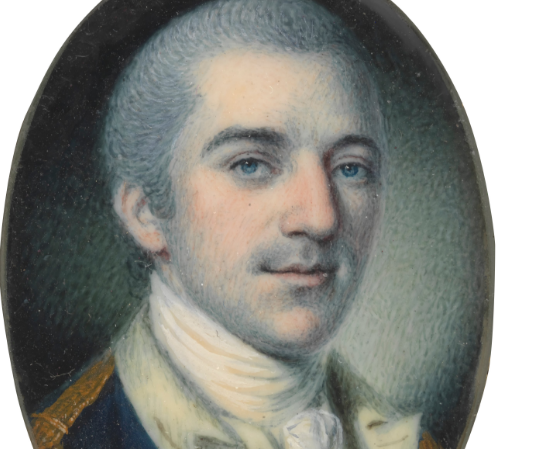In April 1779, as the American Colonies struggled to gain their independence from England, a 24-year-old Alexander Hamilton sent this letter to John Laurens, a 23-year-old South Carolinian:
Cold in my professions, warm in my friendships, I wish, my Dear Laurens, it might be in my power, by action rather than words, to convince you that I love you. I shall only tell you that ’till you bade us Adieu, I hardly knew the value you had taught my heart to set upon you. Indeed, my friend, it was not well done. You know the opinion I entertain of mankind, and how much it is my desire to preserve myself free from particular attachments, and to keep my happiness independent on the caprice of others. You should not have taken advantage of my sensibility to steal into my affections without my consent. But as you have done it and as we are generally indulgent to those we love, I shall not scruple to pardon the fraud you have committed, on condition that for my sake, if not for your own, you will always continue to merit the partiality, which you have so artfully instilled into me.
Hamilton and Laurens had met two years before, in the spring of 1777, while serving together on George Washington’s staff. Blue-eyed, lean, attractive, romantic, and elegant, Laurens shared many qualities with Hamilton. As such, it’s no surprise that the two young men quickly grew fond of one another. The correspondence above is one of many letters of affection the two men shared after Laurens went to South Carolina to take up the Revolutionary cause.
The contents of the letters, portions of which some of Hamilton’s progeny attempted to conceal, have led some to speculate that perhaps a sexual relationship existed between Laurens, Hamilton, and the Marquis de Lafayette, a French officer several years younger than Laurens who also served under Washington. (Hamilton’s grandson actually refers to the men as “the gay trio.”)
James T. Flexner, a Hamilton biographer and Pulitzer Prize-winning historian writes that Hamilton’s passionate effusions naturally raise “questions concerning homosexuality” in modern minds, despite the fact that Laurens had a young bride in England (whom he had impregnated) and Hamilton married in 1780. Here is what Flexner wrote in The Young Hamilton:
Hamilton and his fellow aides routinely sent each other their love; indeed, they often sent their love wholesale to the entire headquarters Family. What considerations carry an emotional relationship between members of the same sex over the edge? If the answer is, as the twentieth century seems to assume, a purely physical one, it can only be said that the essential data are lacking in relation to Hamilton and Laurens and Lafayette. Certainly no one at the time sensed anything to whisper about, but then in the eighteenth century homosexuality had by no means become the active issue that it is today.”
Hamilton biographer Ron Chernow notes that young Alexander had almost certainly been exposed to homosexuality as a boy in the Caribbean, since records show that many “sodomites” were transferred to the Virgin Islands. He adds that if Hamilton and Laurens were lovers they almost certainly would have attempted to keep such a relationship secret, since sodomy was a capital crime in all 13 Colonies.
Could a sexual relationship have existed? It’s possible. Hamilton was prone to bouts of great passion, including lust, evidenced by his extramarital affair many years later. It’s also unlikely. Such a secret would have been extremely difficult to keep given the living quarters at the time; and the severe penalties likely would have discouraged a more physical expression of love, even if the men had desired such.
Perhaps the likeliest scenario is that the young men developed strong bonds of affection–not uncommon, particularly during war–and felt more inclined to express those affections knowing that any day could be their last. (It should also be noted that the writing style of the time was rather sentimental.)
In any case, the men likely regretted only the affections they did not share with one another. John Laurens was killed in battle on Aug. 27, 1782 near Combahee River in South Carolina weeks before the British evacuated Charleston. He was 27.
Do you think the Hamilton-Laurens relationship was homosexual in nature? Or is this merely evidence of the modern tendency to see latent homosexuality in deep friendships?
















2 Comments
Dee S. Nauts
November 7, 2022, 6:27 pmi knew something was goingf on
REPLYAla Scott anderson
July 27, 2024, 1:43 pmThe letters to john Lauren are sweet although Hamilton died in a duel because he cheated on Elizabeth known as in
REPLYThe play Analisa with theradorsa. john and Hamilton were
good friends and as lovers although he did marry a
Woman he and john Lauren were still good friends
We love u Hamilton may u live forever life and in
Death